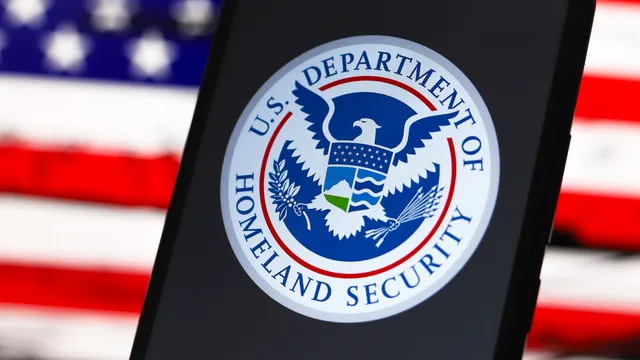
DHS arrests 11 Iranian nationals amid heightened security concerns
2025-06-24 21:10- Federal agents arrested 11 Iranian nationals across eight states, targeting those illegally present in the U.S.
- Among those detained were individuals with criminal backgrounds and links to terrorist organizations.
- The DHS indicated that these operations are part of a broader crackdown on illegal immigration, emphasizing national security.
Express your sentiment!
Insights
In the United States, over the weekend, federal immigration agents conducted a series of arrests involving 11 Iranian nationals across eight states. These operations were part of a broader crackdown on illegal immigration following the strategic bombing of Iranian nuclear facilities, ordered by President Donald Trump. Among those arrested were individuals with alleged connections to terrorist organizations and criminal histories. Notably, one detainee, Mehran Makari Saheli, is linked to the Islamic Revolutionary Guard Corps and Hezbollah, while another, Yousef Mehridehno, was recently added to the U.S. known or suspected terrorist list. The arrests took place in multiple locations including Gluckstadt, Mississippi; Locust Fork, Alabama; and San Francisco, California, raising concerns about national security. The Department of Homeland Security (DHS) emphasized their proactive approach to addressing potential threats to the U.S. homeland, focusing on individuals who may pose risks due to their backgrounds and activities. Despite the arrests, DHS officials stated there are no credible threats currently identified against the homeland. Significantly, a U.S. citizen, Linet Vartaniann, was also taken into custody for threatening ICE officials during the operations, highlighting the complex dynamics surrounding immigration enforcement. The Trump administration has reiterated its commitment to carrying out such immigration operations rigorously, insisting that they target 'the worst of the worst'. This aligns with the overall strategy of maintaining national security in light of rising tensions with Iran. While past data shows a consistently high number of Iranian nationals being arrested, the urgency of this operation reflects the intensified scrutiny following military actions overseas. The overall impact of these arrests on broader immigration policy and national security is being closely monitored, with officials remaining vigilant about potential terrorist activities associated with the Iranian nationals arrested over the weekend.
Contexts
The history of US-Iran relations is a complex narrative defined by a mix of diplomacy, tension, and conflict spanning several decades. Initially, the relationship was characterized by mutual interests, particularly during the 1950s when the US supported Iran's monarch, Shah Mohammad Reza Pahlavi, in a coup that reinstated him after his government was perceived as leaning towards communism. In the following years, this partnership allowed Iran to align with American interests in the Middle East, particularly during the Cold War. However, dissatisfaction with the Shah's regime, largely due to his authoritarian rule and the influence of Western powers in Iranian affairs, fueled resentment among various factions within Iran, culminating in the 1979 Iranian Revolution. This shift dramatically altered the US-Iran relationship as the newly established Islamic Republic, led by Ayatollah Khomeini, adopted an anti-American stance, leading to the severing of diplomatic ties and the hostage crisis during which 52 American diplomats and citizens were held for 444 days. The aftermath of the revolution saw a series of confrontational episodes, including the Iran-Iraq War from 1980 to 1988 in which the US initially provided limited support to Iraq. The 1990s marked a significant cooling of relations, with the US labeling Iran as part of the "Axis of Evil" in 2002 due to its support for militant groups and its nuclear program. Efforts at diplomacy were intermittent, with the most notable attempt being the 2015 Joint Comprehensive Plan of Action (JCPOA), an agreement aimed at curbing Iran's nuclear capabilities in exchange for sanctions relief. However, tensions escalated again when the US unilaterally withdrew from the agreement in 2018, reinstating harsh sanctions and further complicating the already fraught relationship. Immigration enforcement has also been significantly influenced by US-Iran relations, particularly in light of national security concerns and political rhetoric surrounding terrorism. Following the 9/11 attacks, the US government intensified scrutiny of immigrants from predominantly Muslim countries, including Iran. The ensuing years saw the implementation of various immigration policies that disproportionately affected Iranian nationals, characterized by increased vetting procedures and travel restrictions, especially under the Trump administration's travel ban, which impacted several countries but explicitly included Iran. As of 2025, the immigration landscape for Iranians remains complicated by the fractures in US-Iran relations. While some hope for improved relations under the Biden administration, the impacts of past policies, sanctions, and geopolitical events linger, creating hurdles for Iranian students, professionals, and families seeking opportunities in the US. The historical volatility of diplomatic relations will likely continue to affect immigration policy and enforcement, emphasizing the need for a nuanced understanding of international relations and their repercussions on individual lives.